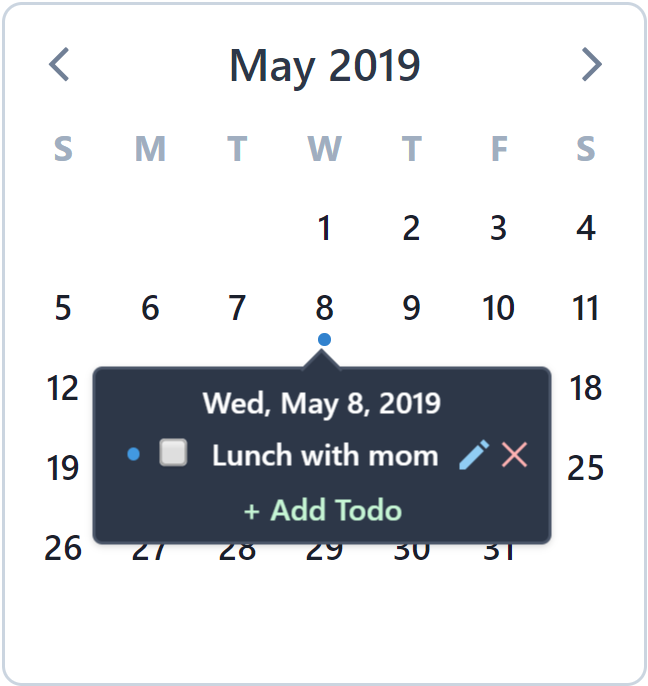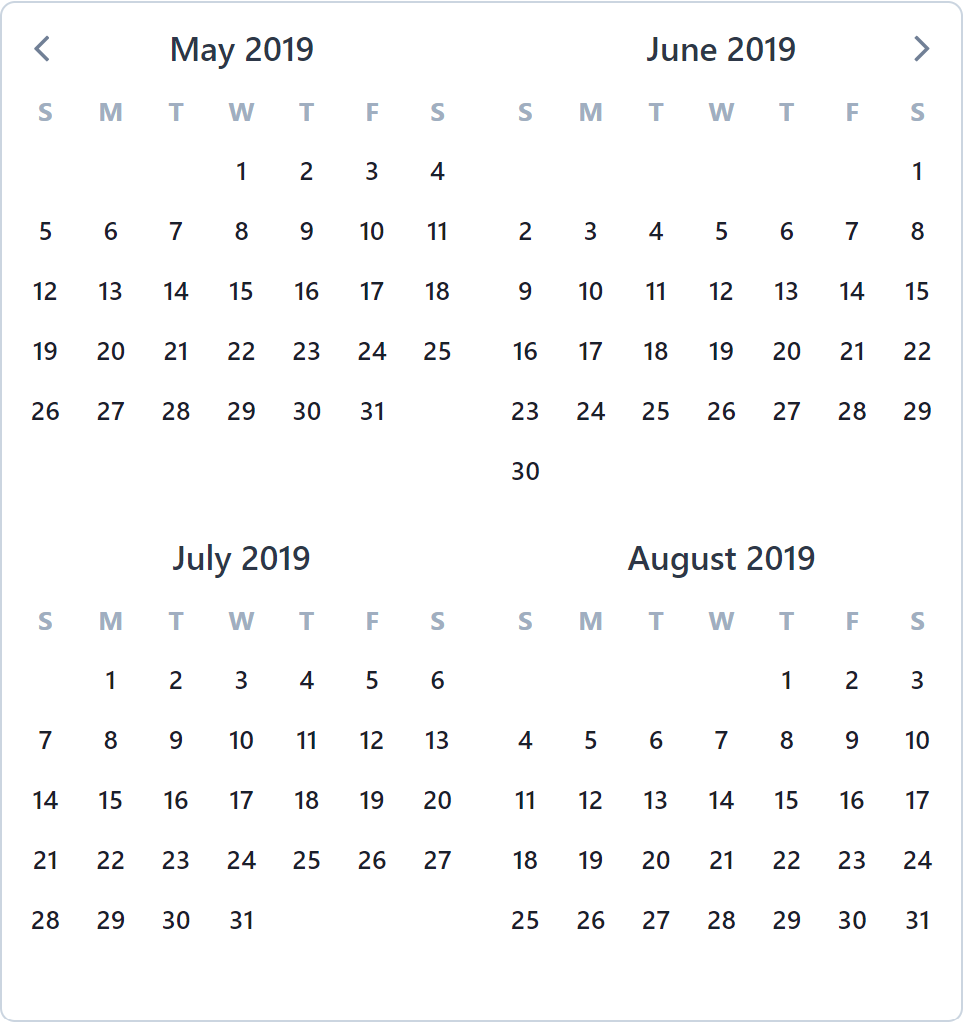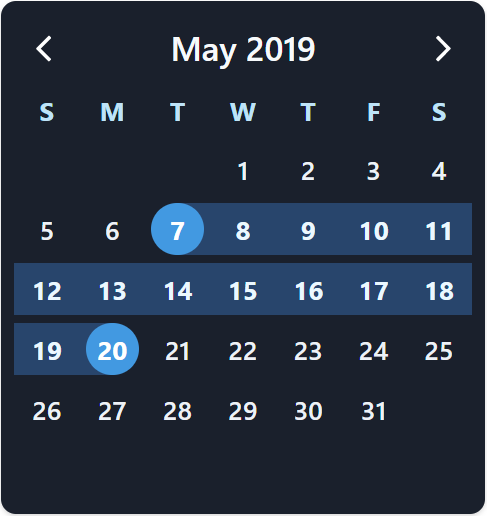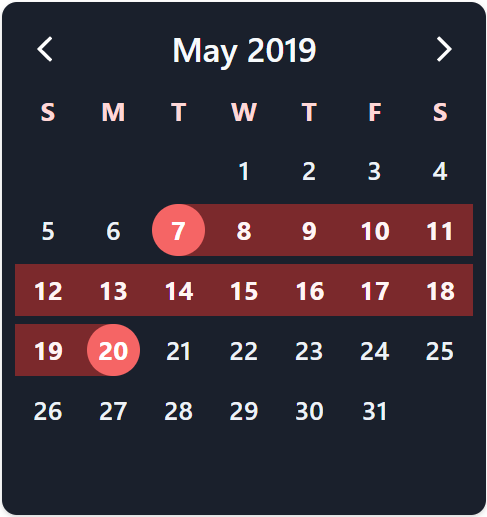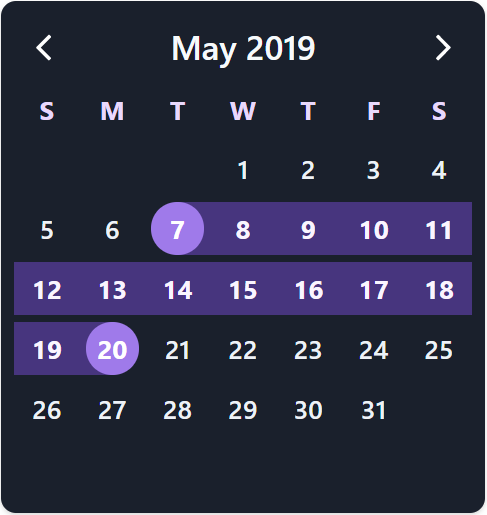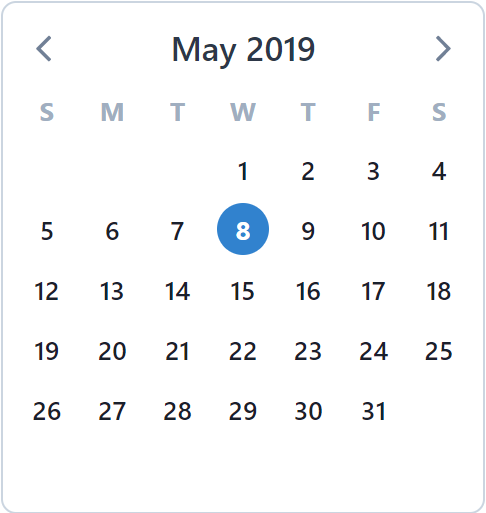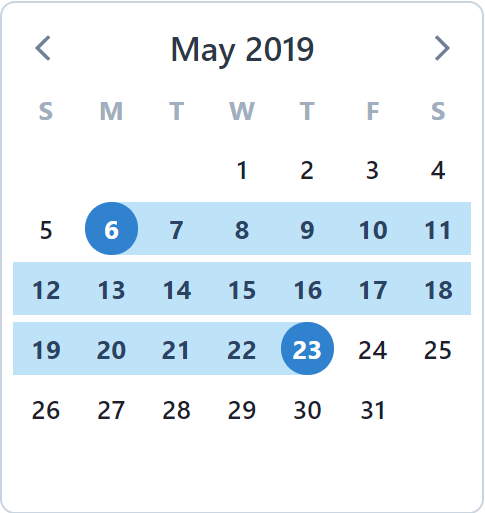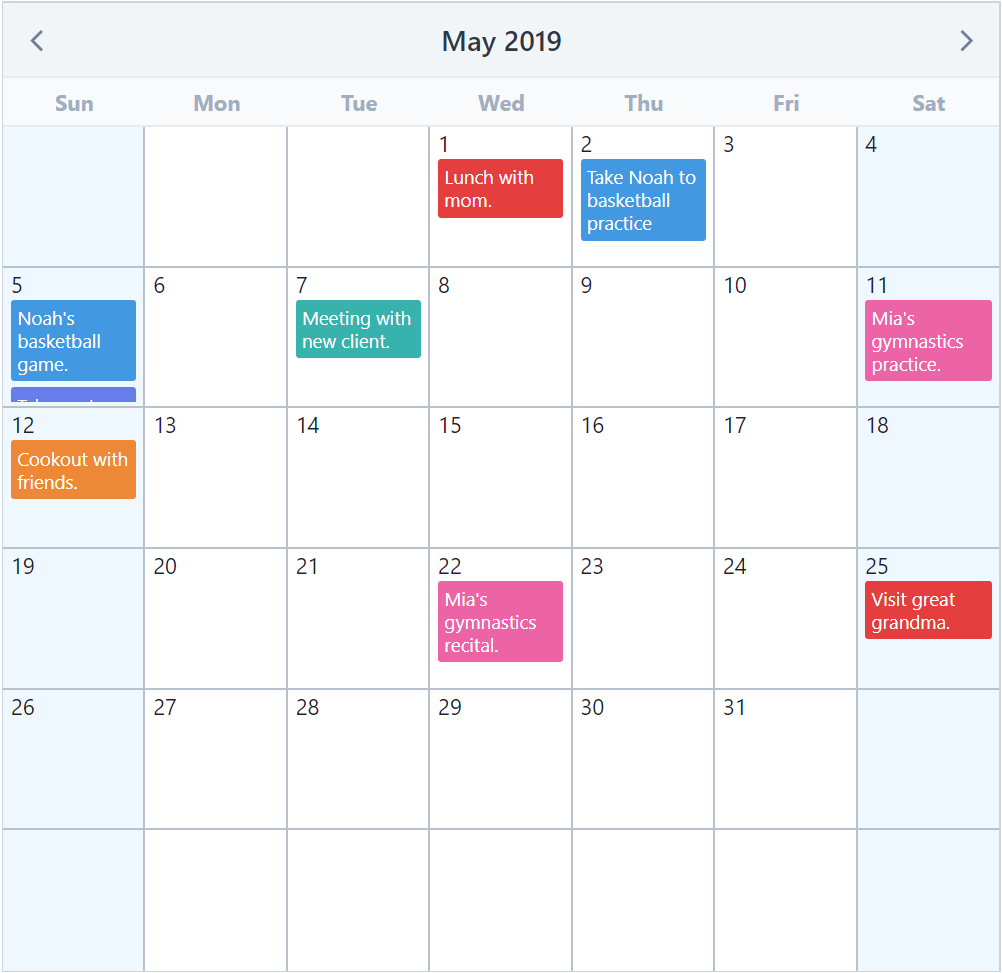v-calendar vs vuejs-datepicker
Date and Time Picker Components
Date and Time Picker Components are UI elements that allow users to select dates, times, or both from a calendar interface. These components are essential in web applications for forms, scheduling, and any functionality that requires date or time input. They enhance user experience by providing a visual way to select dates and times, reducing errors associated with manual input. v-calendar is a versatile Vue.js component that provides a calendar and date picker functionality, allowing for single, multiple, or range date selections. It is highly customizable and supports features like event rendering, date disabling, and internationalization. vuejs-datepicker is a simple and lightweight date picker component for Vue.js that focuses on ease of use and simplicity. It provides a clean interface for selecting dates, supports date formatting, and allows for customization of its appearance and behavior. It is ideal for projects that require a straightforward date picker without extensive features.
Customization
- v-calendar:
v-calendar offers extensive customization options, including the ability to style the calendar, customize date rendering, and implement slot-based rendering for events. It also supports theming and allows for deep customization of its components.
- vuejs-datepicker:
vuejs-datepicker provides basic customization options such as date formatting, disabling specific dates, and customizing the appearance through CSS. However, it is more limited in terms of deep customization compared to v-calendar.
Feature Set
- v-calendar:
v-calendar comes with a rich set of features, including single, multiple, and range date selection, event rendering, date disabling, and support for internationalization. It is designed to handle complex date-related functionalities.
- vuejs-datepicker:
vuejs-datepicker focuses on providing a simple date selection interface with features like date formatting, disabling dates, and basic localization. It is not as feature-rich as v-calendar, making it more suitable for simple use cases.
Size and Performance
- v-calendar:
v-calendar is relatively lightweight considering its feature set, but it is larger than some basic date picker components due to its comprehensive functionality. Performance is generally good, but complex customizations and heavy event rendering may impact it.
- vuejs-datepicker:
vuejs-datepicker is a lightweight component that loads quickly and performs well, making it ideal for applications where performance and load time are critical. Its simplicity contributes to lower resource usage.
Ease of Use
- v-calendar:
v-calendar has a moderate learning curve due to its extensive features and customization options. However, its documentation is thorough, which helps developers understand and implement its functionalities effectively.
- vuejs-datepicker:
vuejs-datepicker is very easy to use, with a simple API and clear documentation. It is beginner-friendly and can be integrated quickly into projects without much effort.
Code Example
- v-calendar:
v-calendar Example
<template>
<v-date-picker v-model="selectedDate" />
</template>
<script>
import { ref } from 'vue';
import { VDatePicker } from 'v-calendar';
export default {
components: { VDatePicker },
setup() {
const selectedDate = ref(null);
return { selectedDate };
},
};
</script>
- vuejs-datepicker:
vuejs-datepicker Example
<template>
<date-picker v-model="date" />
</template>
<script>
import DatePicker from 'vuejs-datepicker';
import { ref } from 'vue';
export default {
components: { DatePicker },
setup() {
const date = ref(null);
return { date };
},
};
</script>
- v-calendar:
Choose v-calendar if you need a feature-rich and highly customizable calendar and date picker component. It is suitable for applications that require advanced functionalities like range selection, event rendering, and extensive customization.
- vuejs-datepicker:
Choose vuejs-datepicker if you prefer a lightweight and easy-to-use date picker with a simple API. It is ideal for projects that need a straightforward date selection component without the overhead of additional features.








